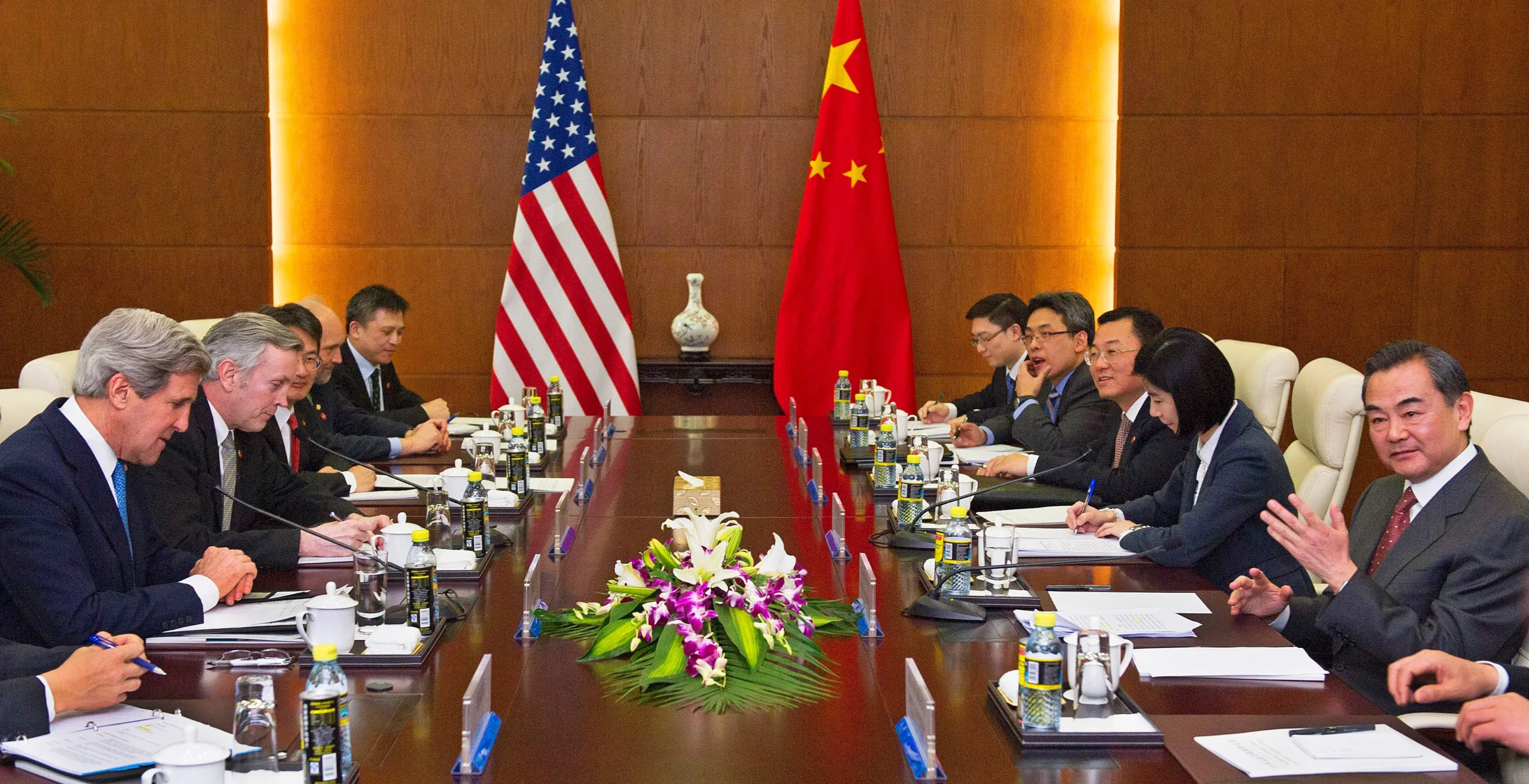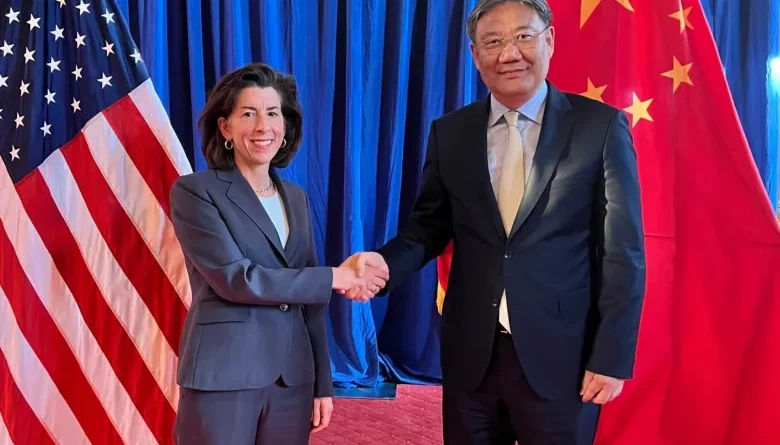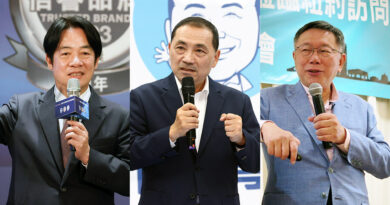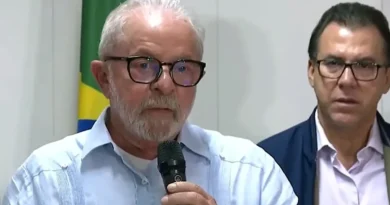The real threat from China: they have a better capitalist system than ours
PATRICK LAWRENCE
The Biden regime's robotic procession towards Beijing is advancing apace. After Antony Blinken's unsuccessful visit to China in mid-June, we paid for Janet Yellen's plane ticket for her to make another useless trip to Chinese territory. And then the same thing happened with John Kerry. Then, it was Gina Raimondo's turn.
The Secretary of State, the Secretary of the Treasury, the main person responsible for American climate policy and the Secretary of Commerce. What is the objective of this parade?
I can't help but wonder if these senior officials are sent to the other side of the Pacific based on how unimportant they are. Raimondo, who previously failed as governor of Rhode Island—except for her plan to cut public pensions, which met with unfortunate success—is mediocrity in person.
The Chinese must be wondering, with disgust, amusement, or both, who the Biden regime will send next.
The assignment of duties in all these cases is the same. It all comes down to “two responsibilities that, apparently, are contradictory,” as economic journalist Ana Swanson said in the newspaper The New York Times Recently.
She wrote that Biden is trying to “strengthen U.S. trade relations with Beijing while imposing some of the toughest trade restrictions on China in recent years.”
In reality, we can live without “in appearance.” That the US government is proposing to the eastern country to carry out routine business while sabotaging its competitive position in the advanced technology sector is, at first glance, a ridiculous idea.
However The New York Times must publish the expression “in appearance” because it is imperative that the Biden regime appears to think sensibly and with good intentions when it comes to its relations with the People's Republic.
Blinken, Yellen and Kerry did nothing, and, in Raimondo's case, it is useless. The last stop on his itinerary was a visit to Shanghai Disneyland. You have to give credit to the Commerce Secretary's planner for the parting reference to dreams and fantasy.

An English friend told me that we Americans blink and shout a lot all over the Pacific these days. It's true, although I think that, at the moment, it's more about the former than the latter. In reality, what happens is that this Administration does not know how to execute a solid policy towards China.
What is this about? I have long concluded that Biden's foreign policy experts are the people who embody the definition of insanity that is often mistakenly attributed to Einstein. These people seem to do the same things over and over again while still expecting different results because of it. Despite this, I have to revise that last statement due to Raimondo's visit to Beijing.
Those directing Biden's national security policies are unimaginative ideologues and would be paralyzed by the idea of departing from the neoliberal catechism. But they are not crazy, and I am beginning to see a diabolical plan in their dealings with Beijing. The Chinese are right to oppose it.
The Biden Administration's strategy toward China can be boiled down to a single word: “stop.” All these useless talks are aimed at hiding the concerted effort being made to undermine the Chinese economy, with which we cannot compete in several strategic sectors.
In addition, these meetings also seek to gain time to move the maximum amount of US military equipment to the Pacific Ocean under the Pacific Defense Initiative (PDI), the program that the Department of Defense launched a few years ago.
It is likely that before long we will see Washington's trans-Pacific military ambitions take precedence over its trade and investment relationships. He is already warning the American corporate and financial sectors that their interests, which were prioritized in the decades after former Chinese Minister Den Xiaoping's reforms were enacted, will not be prioritized as the new "cold war" destroys relations. with Asia.
Two years ago, Raimondo gave an interview on the economic news television network CNBC in which, more or less, he announced the regime's intention to subvert key sectors of the Chinese economy. He was about to talk about a European-American Trade and Technology Council, telling his interlocutor: “If we really want to slow down China's rate of innovation, we need to work with Europe.”
From time to time, it's useful to have stupid people like Raimondo in high positions, because they can unintentionally tell you a lot more than you're supposed to know. Stopping China's impressive advances in high-tech sectors was Washington's precise intention when Raimondo gave this interview.
Since then, the Commerce Department has imposed a wide range of restrictions on exports to China of U.S. semiconductor chips, software systems and machinery needed to make such parts. As Ana Swanson explains, Raimondo is likely to impose more limitations of this type after returning from Beijing.
The US Government camouflages this unworthy behavior by ensuring that trade obstacles are only encountered by technologies that could be useful to the Chinese Army.
Jake Sullivan's statements in the speech he gave last April at the Brookings Institution are the exponent of the intentions of the latest visitors to Beijing. “We are imposing necessary restrictions on specific technology exports,” he said, “while trying to avoid an outright technology blockade…The Administration intends to maintain a substantial trade relationship with China.”
This is what Raimondo and all those who have preceded her in China say when they detail their objectives. Washington's only concern regarding the imposition of Raimondo's regime of restrictions is national security, and it doesn't care about anything else.
It's hard to think of a flimsier excuse. Following this same criterion, the US Government would have to restrict sales of Juicy Fruit chewing gum to the Chinese. The Biden Administration is trying to “securify” the US economic relationship with China. If you have ever thought that the United States is a failed empire unwilling to accept the realities of the XNUMXst century, I offer these statements as proof that you were right.
The Chinese know this, and have said it many times. I don't think Blinken, Yellen and others want to persuade them otherwise with these meetings. Their true purpose is to deceive the American public. They want to make sure we don't understand that Raimondo's efforts are aimed at slowing the rise of Chinese economic power in favor of the uncompetitive US economy.
I found Sullivan's speech last spring interesting both for what it left out and for what it contained. He did not mention the US military buildup in the far western Pacific, but the Pentagon is deepening its relations with Australia, Great Britain, India, Japan, South Korea and the Philippines through alliances such as AUKUS or the Quad group.
The same happens with Raimondo's projects in the technological field. Neither the Chinese nor many other leaders believe the poor American explanations. And no one expects them to. The only ones who have to swallow them are the citizens of the United States.
We are not supposed to watch as Washington provokes and develops the Second Cold War before our eyes, we are supposed to watch as our officials – reasonable, constructive and well-intentioned – make every effort to talk to the Chinese in the face of their stubborn reluctance to cooperate .
This is my revised version of Blinken, Yellen, Kerry and Raimondo's ride across the Pacific. They are not stupid people, but malicious. And maybe it doesn't need to be said, but they are making the world an even more dangerous place than it already was.
At this point, there are two things to think about. Firstly, in the Biden regime's efforts to hide what it is doing at the other end of the Pacific, which are part of a simple repetition of the First Cold War, whose history is told as if it were exclusively Soviet responsibility. We must enforce and defend accurate record keeping so this does not happen again.
Secondly, in the immense betrayal that this Administration is going to commit against the Americans by attacking in the Pacific, since they are going to be deprived of numerous opportunities due to the confrontation. You'll find plenty of references in Jake Sullivan's speech about the resurgence of the American middle class, bipartisan unity, and other such lofty thoughts.
Read the speech and then ask yourself: What are this nation's leaders doing to make our economy more competitive? Are we redoubling our efforts to educate our people or are we closing off access (see West Virginia University) to liberal arts education?
What are we doing to train the doctors and scientists needed to find our way in the XNUMXst century? What are we doing to bring the dispossessed into the economy, to address drug addiction and the rest of our social ills? What are we doing (I mean seriously) to repair and build the infrastructure we need?
The Chinese challenge could and should be understood as an opportunity to reinvent the US through a Great Mobilization on the magnitude of the New Deal. Of course, this idea is nothing more than hot air. Instead, we are sacrificing this historic opportunity in favor of military-industrial development.
Patrick Lawrence He has been chief correspondent for Asia International Herald Tribune y The The New Yorker. She has written for outlets such as The New York Times, Business Week, Time, The Washington Quarterly, Asian Arte News or World Policy Journal. Currently, she is an international affairs columnist at The Nation. His latest book is Time No Longer: Americans after the American Century.
This article is published in collaboration with scheerpost.









